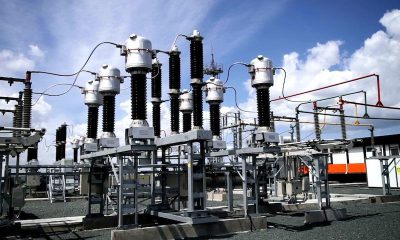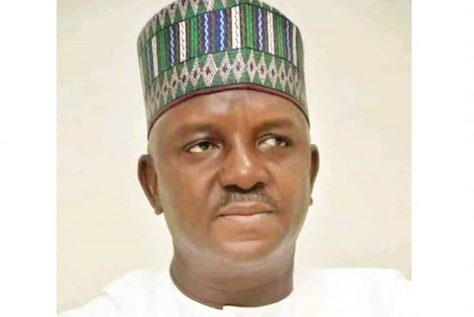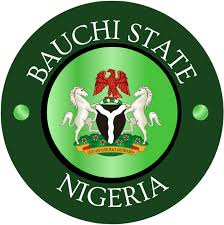Environment
Electricity Crisis: GenCos Blame N1.64trn Debt for Low Power Supply

By Joseph Amah, Abuja
As the energy crisis facing the country deepened at the weekend, power generation companies in Nigeria (GenCos) have attributed the low electricity generation to the national grid to the N1.644 trillion owed them by the Nigerian Bulk Electricity Trading Plc.
The GenCos which spoke under the aegis of the Association of Power Generation Companies (APGC) said the amount which came as a result of unused capacity dates back to 2015. Speaking to journalists in Abuja, APGC Executive Secretary, Dr. Joy Ogaji accused NBET of failing in its obligations to the GenCos as contained in the Power Purchase Agreements (PPA).Dr. Ogaji who gave a breakdown of the debts, said NBET owed the GenCos N214.
93 billion in 2015; N273.32 billion in 2016; N236.47 in 2017, N264.08 billion in 2018, and N256.97 billion, N266.01 billion and N120.25 billion in 2019,2020 and 2021 respectively. The figures were however disputed by NBET which claimed that not all GenCos were entitled to unutilized capacity payments.As the operators and the government agencies continue to bicker, power supply has remained abysmally low in the past three weeks. As at 5pm yesterday, national grid supply was just 1,393.40 Megawatts with only nine plants generating to the grid. Dr. Ogaji at the briefing explained that the huge debt was making it difficult for the power generation companies to operate and maintain their plants, stressing that if the debts were paid, the GenCos could generate 9,000MW immediately.
According to her, the “illiquidity caused by the huge sums owed GenCos by NBET, has more than ever before continued to frustrate the GenCos and kept them incapable of meeting their obligations which are extremely necessary to keep their power plants running and make capacities available, while observing required Health, Safety and Environment (HSE) standards.
Such obligations include our operations and maintenance (O&M) as and when due, procurement of critical capital, spare parts and accessories, payment, and servicing of existing loans from lenders and financiers, employee obligations, etc. “Recently, GenCos cried out to the authorities and are still looking forward to a favourable consideration of their pleas for foreign exchange support to enable them to procure critical spares for their turbines and equipment to keep them in good state of repair. This is in addition to the FX challenges faced by the Hydros, whose concession fees are dollarized”.
She added: “Most of the electricity generated in Nigeria, about 80 percent, come from gas-fired turbines. Natural gas is the feedstock or fuel of these plants. GenCos have consistently been dealing with unending gas-related challenges which inhibit optimal generation. Issues of gas volume, gas quality, gas pressure and gas transportation have consistently curtailed capacity utilisation by GenCos thereby affecting generation.“These issues need to be addressed and urgently too, as the GenCos have always requested. Unfortunately, the unenforceable state of the contracts in the NESI (Nigerian Electricity Supply Industry) and the broken cycle of payment assurance have made the enforcement of what would ordinarily be basic obligations of parties to the industry agreements, impossible”.
In its reaction, NBET disputed the figures quoted by the GenCos, saying only companies with active gas supply and transportation contracts were paid for unutilized capacity. The Head Corporate Communication, NBET, Henrietta Ighomrore explained to Vanguard that in the country only five power generation companies with active Gas Purchase Agreement were paid for unused capacity. According to her, claims by Dr. Ogaji that the GenCos have the capacity to generate 9,000MW were not accurate as inspections by NBET have shown that the capacity does not exist.
She said: “On the issue of capacity payments, the contract documents are very clear on how it is treated. All GenCos get paid for the associated capacity on energy delivered to the national grid. Only GenCos with active PPAs get full capacity payment based on their active gas contracts. “You are well aware that active gas contracts are associated with the take and pay obligations, which come with more financial exposure and responsibilities. Nonetheless, the Regulator (NERC) has set in motion the process for partial activation of contracts in the sector, which was what necessitated the scheduled capacity test by NBET to various thermal plants around the country. “Although, we were not able to record full participation of all GenCos, as some were either not able or showed willingness. With a better understanding of the intent, we expect full cooperation of GenCos in subsequent capacity tests of their plants. It is important to ascertain the actual capacity of our generation network to enable better planning and efficient dispatch of power within the grid network”.
Ighomrore added: “The situation in the Power Sector right now is not one for name calling or blame game, neither is it one for fictitious data reporting. As you are well aware, the Federal Government via NBET has continued to deploy innovative solutions aimed at sustaining sufficient cash flow within the Power Sector especially payments to the GenCos to ensure they meet their immediate obligations and continue to meet and ramp up generation to the National grid”.
Environment
First Lady Seeks Lasting Solution to Eradicate Environmental Pollution

The First Lady, Sen. Oluremi Tinubu has called for a lasting solution to eradicate environmental pollution caused by plastic wastes.
In her message to mark the year 2025 World Environment Day, with the theme ‘Ending Plastic Pollution’, in Abuja on Thursday, the first lady also advised people to curtail the way they consume food and drinks packaged in plastics.
“I join millions of Nigerians and the world in calling for urgent and united action to safeguard our environment.
Plastic pollution has become one of the most pressing environmental challenges of our time, affecting our health, our environment, and our future.“In Nigeria, we must rise to this challenge by changing how we consume packaged food items and how we dispose of plastic containers and bags.
“I particularly want to speak to our youths, the leaders of tomorrow, be it in schools or within our neighborhoods, each of you has a role to play in creating a cleaner, healthier and greener Nigeria,” she said.
Mrs Tinubu had recently promised to introduce environmental solutions clubs to schools through her NGO, Renewed Hope Initiative (RHI).
“I want to use this opportunity to introduce our students to two programmes that the RHI will be launching soon.
“First is the Environment Club for Secondary School Students and the Environment Society for Students in Tertiary institutions nationwide to help us clean up our environment and grow more trees.
“Second is the “Flow with Confidence” for our girls in rural communities.
“This programme is to provide one year’s supply of disposable sanitary pads to our adolescent girls to support them to remain in school during their menstrual cycle,” She said.
NAN further reports that some of the functions of RHI environmental clubs in schools would include raising environmental awareness; fostering social and life skills; empowering students to take action and promoting sustainable behaviours.
The clubs can also enhance critical thinking and creativity, encourage healthy lifestyles, and strengthen communities.
The club would encourage students to participate in various environmental projects, like tree planting, recycling, and garden projects, gaining practical experience and deeper understanding.(NAN))
Environment
Billboard accident: Abia Govt. to Offset Victims’ Hospital Bills – ABSAA Official

Abia Government says it will offset the hospital bills of the Aba Billboard accident victims.
Mrs Victoria Onwubiko, Managing Director, Abia State Signage and Advertising Agency (ABSAA) made this known on Thursday in Aba at the Salad Market entrance, the site of the accident.
A big billboard fell on some passengers in five tricycles in Aba on Wednesday, following a boisterous wind, killing one person and injuring seven others.
Onwubiko said the governor had given the necessary approval for procedures regarding the victims’ treatment without hindrances.
“So, we are glad there are not going to be any more deaths; from what we have seen, the victims in the hospital are recovering and doing well.
“We understand that about eight persons were involved in the accident; five are at the Abia University Teaching Hospital, two have been discharged and one is died,” she said.
Onwubiko added that the governor had sent his Chief of Staff to the hospital for the proper management of the victims at ABSUTH, Aba.
According to her, there is no hoping that any one of them will go to the court as the state government is doing everything to take care of them.
He said ABSAA would ensure such accidents did not reoccur noting that henceforth the agency would inspect every advertising site in the state.
“We are going to ask the owners of sites like this to give us the technical drawings with which they built their sites.
“If we don’t see them, the bill board will come down for them to redo it to ensure safety,” she said.
The ABSAA MD said every site, whether high or low, which is not sound, will go down.
Mr Chinedu Nwibo, an eye-witness and a vulcaniser for tricycle operators, said there were seven persons at the entrance of the Salad Market on that Wednesday when the accident occurred.
“We were inside a little makeshift shop I had set up for my work when the rain started on Wednesday.
“The wind was very boisterous and some of the tricycle operators went into their tricycles to stay for the rain to stop.
“No sooner had they ran into their tricycles than a big iron pipe used to hoist a billboard fell on them.
“One Destiny Uguru, 27, from Izzi in Ebonyi state died from the accident while seven persons sustained injury,” he said.
Nwibo called on the government to come to the aid of the victims especially by replacing their tricycles.
“The man that lost his life has an expectant wife and two children,” he said. (NAN)
Environment
FG, Partners Urged to Act On Rangeland Conservation

The Federal Government and partners have been urged to take decisive action to protect and restore rangelands, safeguard pastoralist communities’ livelihoods, and enhance climate resilience in dryland regions.
The call was made in a communiqué issued at the conclusion of the 5th International Conference on Drylands.
The conference, themed ‘Promoting Sustainability and Resilience of Rangelands: Present and Future Outlooks’, was organised by the Centre for Dryland Agriculture at Bayero University in Kano and took place from May 6 to 8, 2025.
The three-day conference brought together over 300 participants, including scientists, researchers, policymakers, development partners, and private sector representatives.
The articipants urged governments to develop and implement comprehensive, participatory, and evidence-based legal frameworks prioritizing sustainable rangeland management.
These frameworks should recognise, protect, and support traditional knowledge and practices of pastoralists, ensuring equitable access to land and natural resources.
Secure land tenure and fair resource governance are crucial for promoting peaceful coexistence and preventing land-use conflicts.
The conference recognised the critical role of women and youths from pastoralist communities in driving resilience and sustainability.
The conference also called for increased investment in capacity building, active participation in decision-making processes, and support for income-generating opportunities and sustainable resource development projects.
The conference emphasised the need to scale up public and private sector investments in climate change adaptation strategies, sustainable land management technologies, and diversified livelihood initiatives.
These investments should be complemented by demand-driven research and the promotion of innovations that integrate indigenous knowledge with modern scientific approaches.
The conference urged international development partners and organisations to align their resources with the conference outcomes and enhance regional and global cooperation, particularly on transboundary issues.
The participants also advocated deeper engagement with global initiatives such as the Vision for Adapted Crops and Soils (VACS) and the Africa Soil Initiative.
The conference concluded that the alarming degradation of rangelands, threats to pastoralist livelihoods, and fragility of dryland ecosystems demand urgent, collaborative, and sustained action.
The participants emphasised that achieving healthy rangelands was key to food security, ecological balance, and peaceful coexistence.
The conference brought together participants from 11 African countries, 13 Nigerian states, 17 academic institutions, and several international organisations.
It created a rich platform for knowledge exchange, policy dialogue, and regional collaboration.( NAN)


















